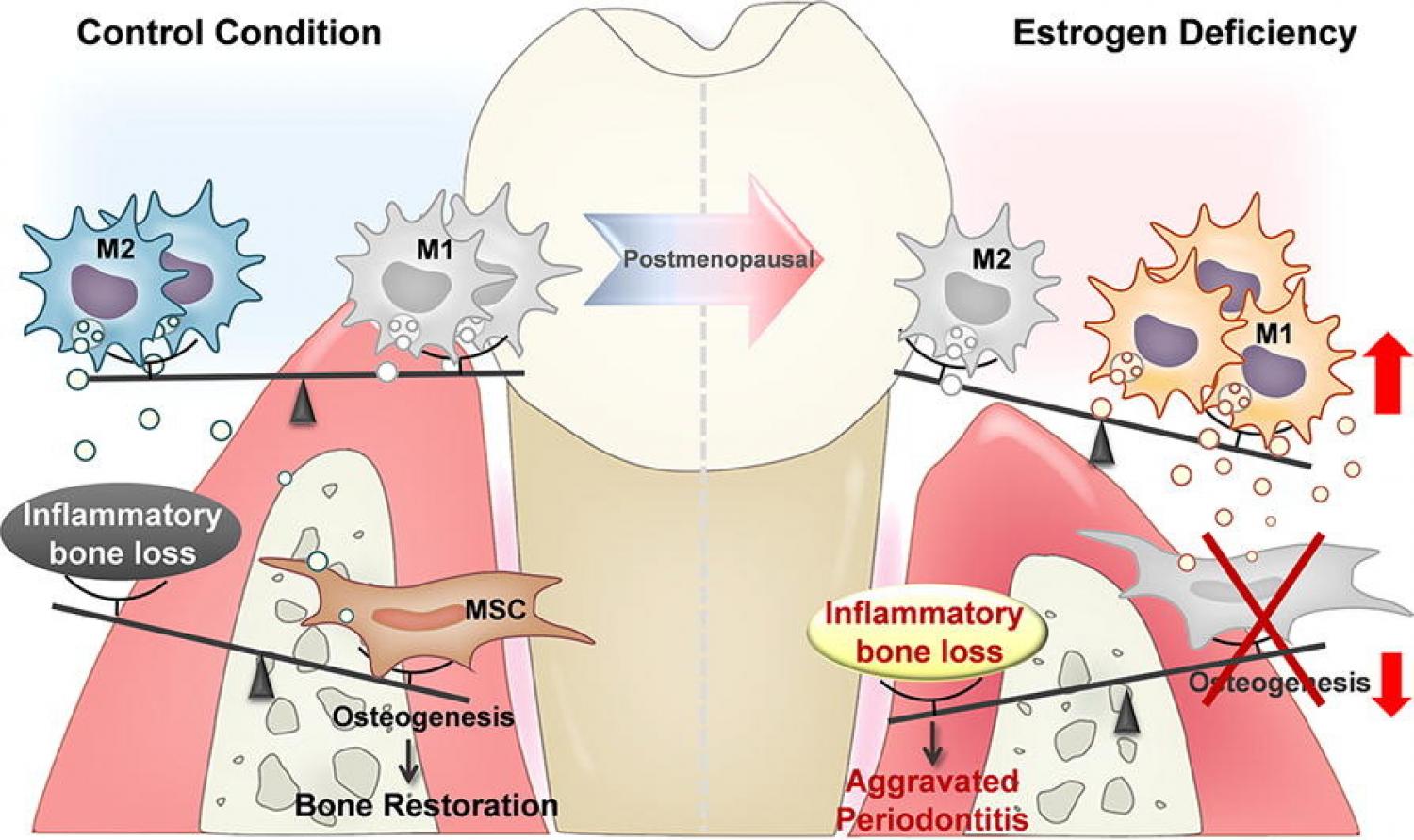
Elsevier, Chemical Engineering Journal, Volume 435, 1 May 2022
Emerging evidence indicates that postmenopausal women with periodontitis have aggravated inflammation and prolonged course, with the detailed mechanisms largely unknown. This study aimed to determine the pathogenic role of aberrant extracellular vesicles due to imbalanced-polarized macrophages and explore the therapeutic approach for periodontitis in postmenopausal individuals. Periodontitis in ovariectomized (OVX) mouse models were established to simulate the aggravated periodontitis in postmenopausal women. Small extracellular vesicles (sEVs) derived from macrophages were isolated, characterized and tracked. Both in vitro and in vivo experiments were applied to compare the effects of M1-sEVs and M2-sEVs on osteogenesis. RNA-Seq was performed to find out up-regulated miRNAs in M1-sEVs. As data shown, compared with the Sham control mice, estrogen deficiency in the OVX-periodontitis mice, significantly increased the ratio of M1 macrophages and thus change the profile of sEVs. The sEVs could be uptaken by mesenchymal stem cells (MSCs). Furthermore, M1-sEVs inhibited the osteogenesis of MSCs and aggravated bone loss in periodontitis. Up-regulated miR-30-5p cluster were found in M1-sEVs. Prevention of the communication aberrance using miR-30e-5p inhibitor loaded sEVs in the OVX mice at least partially restores the aggravated periodontitis. Collectively, this study suggests that the increased M1-sEVs in the estrogen-deficiency context aggravate bone loss in periodontitis via negatively regulating osteogenesis of MSCs, and therapeutically targeting the process holds promise for better prognosis.
